By Chinelo Obogo
Rector, Nigerian College of Aviation Technology (NCAT), Zaria, Dr. Danjuma Ismaila, has lamented the institution’s poor remuneration structure, describing it as the worst-paying agency in the nation’s aviation sector.
While calling for urgent policy reforms to address brain drain and preserve the college’s critical role in the industry, he said NCAT staff constantly flock to airlines where remunerations are more handsome.

In an interview with aviation correspondents in Zaria, the NCAT CEO said the institution has begun developing policies like bonding agreements and collaborating with the NCAA to ensure certificates are tied to NCAT to block room for immediate poaching or access to external employment.
Dr. Ismaila, who mounted the saddle recently, said his mandate is to make NCAT financially independent, increase revenue and expand its impact across Africa.
His success strategy includes the immediate operationalisation of the flight simulator which has remained dormant for many years.
He speaks more on the college’s activities.
What steps is NCAT taking to retain trained staff amid competition from private airlines?
When I assumed office, one major challenge was the decline of trained staff due to poor compensation. We currently have the lowest salaries among aviation agencies and it is severely affecting our ability to retain personnel. Most trained staff have left for better opportunities, with many joining private airlines.
To address this, we’re developing policies to build internal capacity. We plan to implement bonding agreements and collaborate with the NCAA to ensure certificates issued are exclusively for NCAT training purposes, preventing graduates from immediately seeking employment elsewhere. Staff must commit to working with us after training, ensuring our investment doesn’t benefit competitors.
We’ve approached the Salaries and Wages Commission and requested special salary considerations to bridge the gap with industry standards. Yesterday, I emphasised that our college needs competitive compensation packages similar to what the Petroleum Training Institute receives in the oil sector. Their salary alignment with industry rates enables them to retain experts effectively.
We require similar treatment to maintain our workforce. The current salary disparity undermines our capacity-building efforts and threatens our operational sustainability. These strategic interventions will help us develop and retain the talented professionals essential for effective succession planning and institutional growth.
When you were appointed, what plans and strategies did you come up with to reposition the school?
My mandate is to reposition the college for financial independence, boost revenue and increase impact across Nigeria and Africa. The college has immense potential to serve the aviation industry’s training needs and attract participants from other African countries and continents.
Aviation is a global industry and NCAA-certified training here meets the same ICAO standards as worldwide certifications. Whether you obtain an ATPL certificate here or elsewhere, it carries equal recognition since our CAA operates under ICAO certification. This creates opportunities to serve participants globally, with some courses run in collaboration with ICAO, generating substantial foreign exchange.
Once our flight simulators become operational, we expect more participation from Asian countries. Currently, Nigerian and Asian pilots have to queue in Dubai for simulator training but having this facility here will attract queues to our doorstep, as simulators are globally scarce. However, accommodation is a major challenge which has restricted our intake capacity, forcing us to house some trainees externally. We have very strong international demand. In fact, Egyptians recently requested a June 16 programme for air traffic controllers who are seeking instrument rating training. Two months ago, we trained French-speaking countries in aviation English. Our charges are highly competitive compared to US training costs. While participants struggle with expensive hotel bills abroad, our affordable rates make training accessible even though we charge in dollars for many courses.
Our primary need is proper accommodation but we also need modern classrooms and technical facilities for various courses required by aviation professionals globally and locally. Many of our buildings date back to the 1960s and need modernisation. We’re upgrading classrooms and equipment to accommodate larger numbers because many clients have numerous prospective trainees, but our limited capacity, especially for air traffic controllers, cannot satisfy their training needs. They complain bitterly about this constraint. We’re addressing this problem through initiatives like 3D simulators that can train multiple people simultaneously.
Simulator
There are different types of simulators for every aircraft we have in Nigeria. We know it won’t be easy as no country claims to have all aircraft simulators. Emirates operate selectively as they choose only the ones they want. It’s business. You don’t tie up your capital on aircraft that aren’t popular for use.
We’re going to select the most popular ones in the country that we know are in high demand. If someone has a Dash 8 and you bring a Dash 8 simulator, but after a month no one patronises it, that’s a waste of resources or tying down your capital. You choose the ones you know are popular in our society or region.
The B737 has the highest number of aircraft that we have, which is why we have a flight simulator for the B737.
By our analysis, the B737 is the most popular aircraft we have. The CRJ is also emerging. If we can get government support for additional simulators, that would be excellent. Let us start with this one to see how it will be accepted by the market, not only in Nigeria but globally. Once it’s accepted, then we can pursue additional ones.
What is your projection for 2025?
Projecting what we’ll achieve this year or next year is difficult because I’m trying to secure government funding support. If I get the funds to increase our capacity, then I can make projections. But if I can increase our capacity to a certain level in terms of equipment and infrastructure, I can forecast specific numbers. I’m struggling to get government support so we can build this equipment and infrastructure. By next year, whatever we obtain and implement will enable us to say that by a certain period, this will be our projection.
How much is this funding gap?
I cannot estimate the exact amount, but I know the projects we require. There were low-hanging fruits that went unattended, like the full flight simulator purchased about five years ago that’s still lying unused. I’ve now established a task force with a three-month deadline to resolve all outstanding issues.
Initially, they mentioned licensing or certification by the NCAA, so I met with NCAA management. I explained our predicament, which is that the college has invested significantly in this equipment and in manpower development, training both our personnel and theirs, achieving considerable progress. They’ve now agreed to come next week to begin processing the certification. Hopefully, within a month or two, our simulator will be operational.
The NCAA has the capacity to certify the simulator and we’ve trained some of their personnel. If they lack capacity, they’re free to collaborate with sister agencies. That’s the essence of collaboration and partnership. When you have weaknesses, your partner assists you. Right now, we’re not concerned about who comes, whether they or their partners.



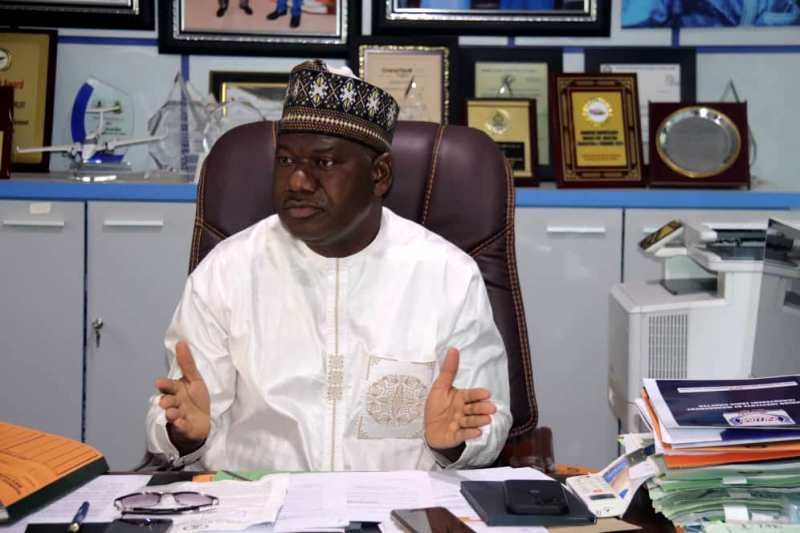
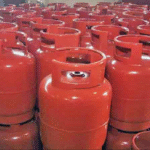

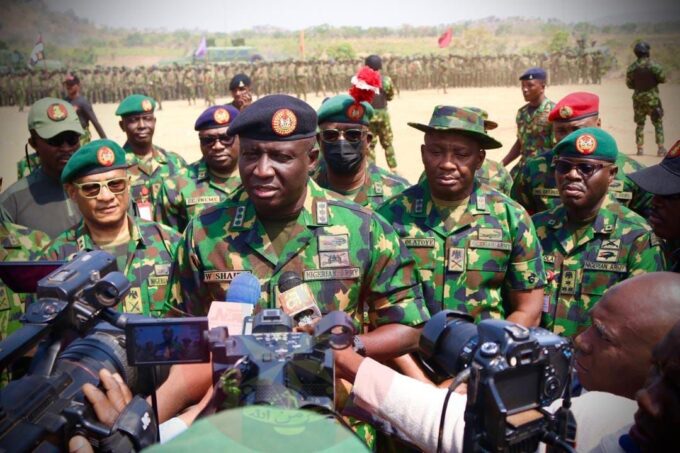
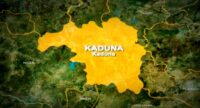

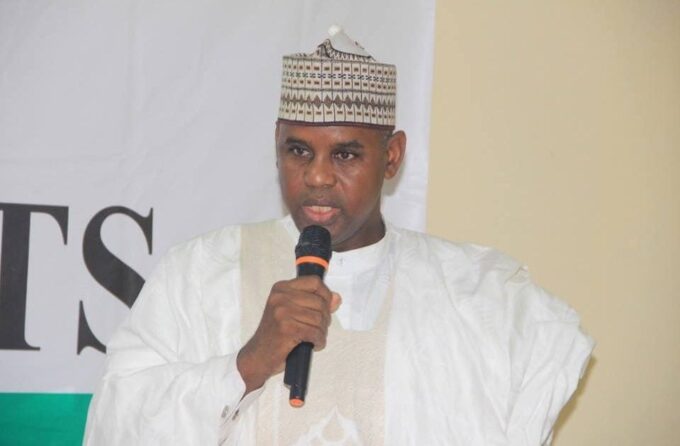
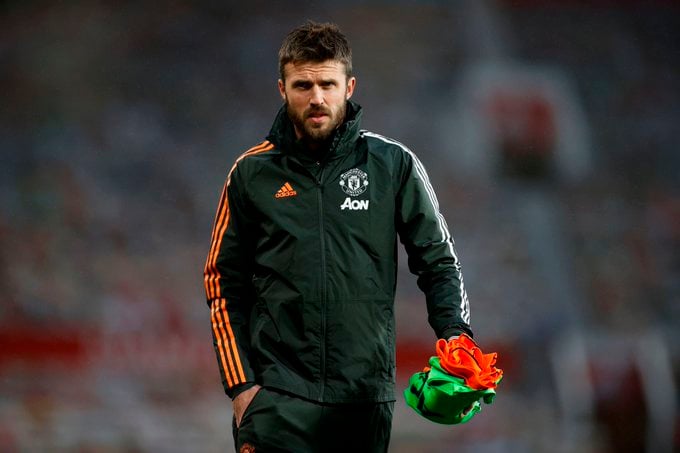
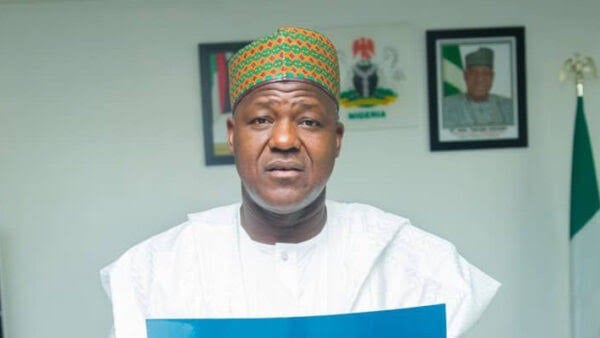





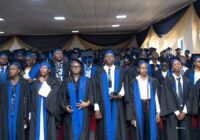
Leave a comment